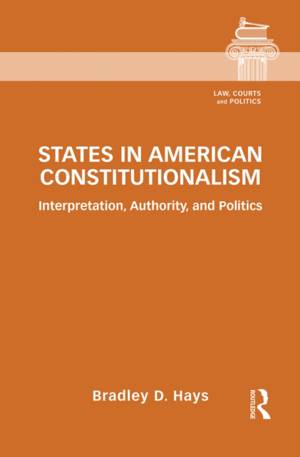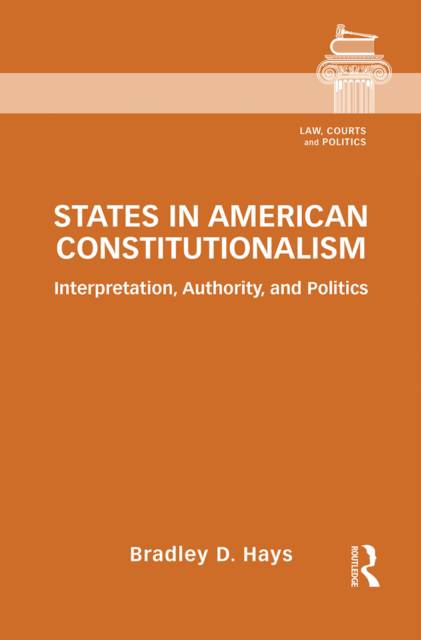
- Retrait gratuit dans votre magasin Club
- 7.000.000 titres dans notre catalogue
- Payer en toute sécurité
- Toujours un magasin près de chez vous
- Retrait gratuit dans votre magasin Club
- 7.000.0000 titres dans notre catalogue
- Payer en toute sécurité
- Toujours un magasin près de chez vous
Description
States in American Constitutionalism: Interpretation, Authority, and Politics examines the often overlooked role that states have played in the development and maintenance of American constitutionalism by examining the purpose and effect of state resolutions on national constitutional meaning. From colonial practices through contemporary politics, subnational governments have made claims about what national constitutional provisions and principles ought to mean, fashioned political coalitions to back them, and asserted their authority to provoke constitutional settlement. Yet, this practice has been far from static. Political actors have altered the practice in response to their interpretive objectives and the political landscape of the day. States in American Constitutionalism explains both the development of the practice and the way each innovation to the practice affected subsequent iterations.
Hays presents a series of case studies that explore the origins of the practice in colonial constitutionalism, its function in the early Republic, subsequent developments in antebellum and twentieth century politics, and contemporary practice in the first two decades of the twenty-first century.
States in American Constitutionalism
will be of great interest to students and academics interested in constitutional law and politics, political and constitutional development, and federalism.Spécifications
Parties prenantes
- Auteur(s) :
- Editeur:
Contenu
- Nombre de pages :
- 126
- Langue:
- Anglais
- Collection :
Caractéristiques
- EAN:
- 9781032092423
- Date de parution :
- 30-06-21
- Format:
- Livre broché
- Format numérique:
- Trade paperback (VS)
- Dimensions :
- 150 mm x 226 mm
- Poids :
- 272 g

Les avis
Nous publions uniquement les avis qui respectent les conditions requises. Consultez nos conditions pour les avis.






